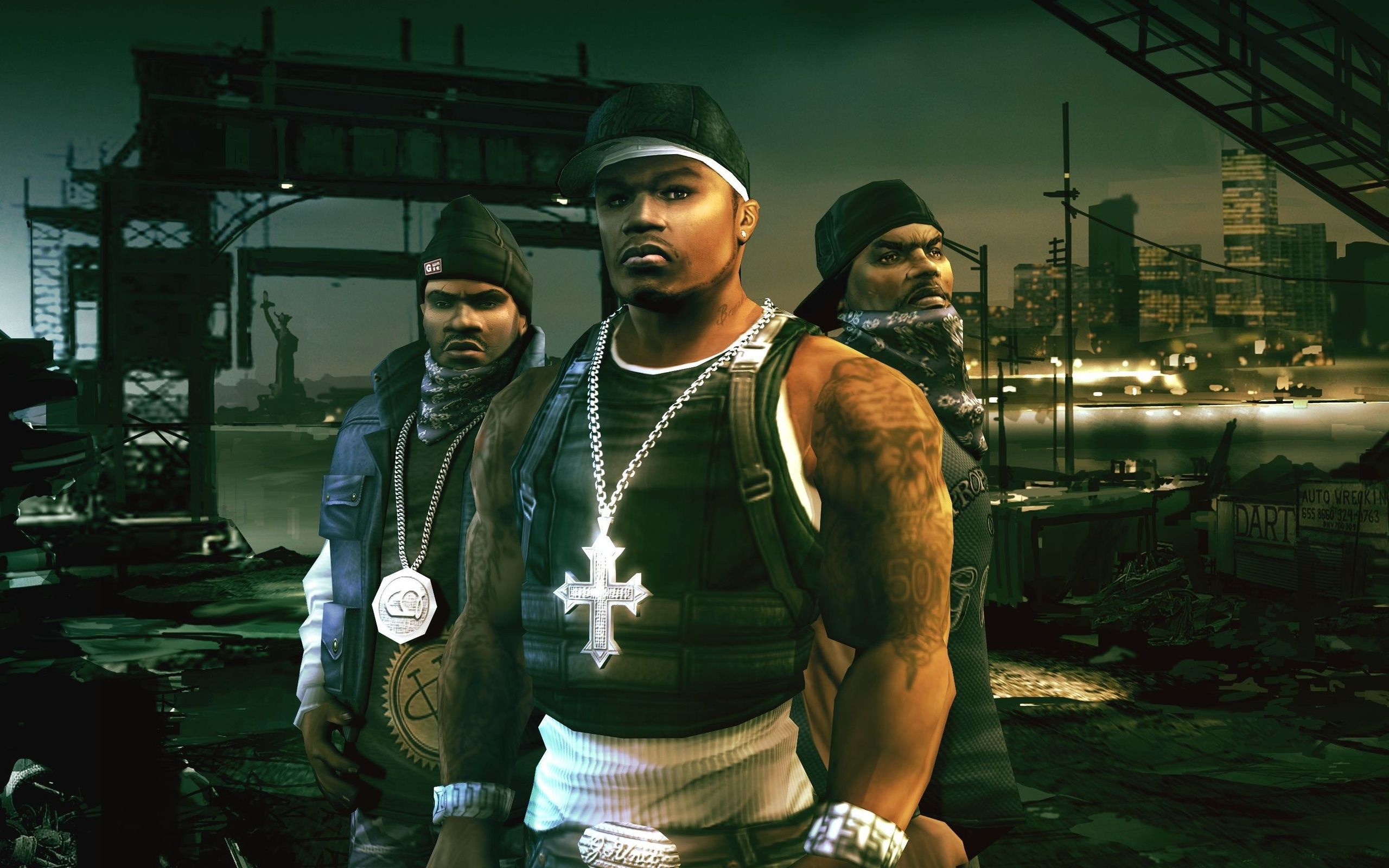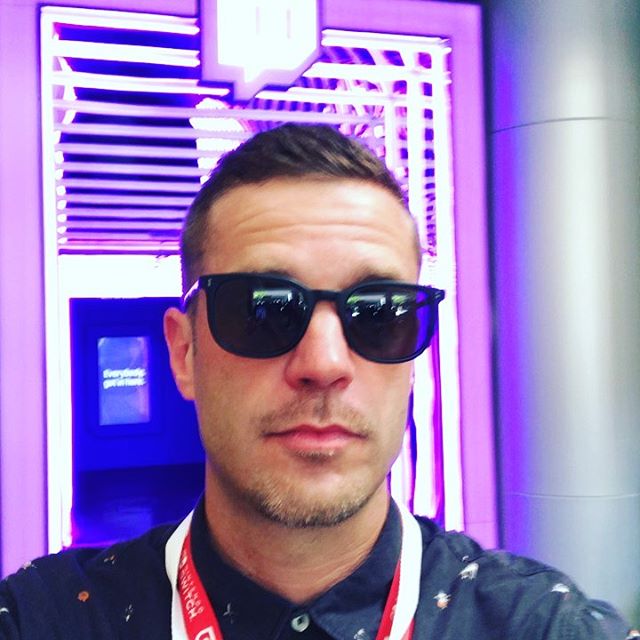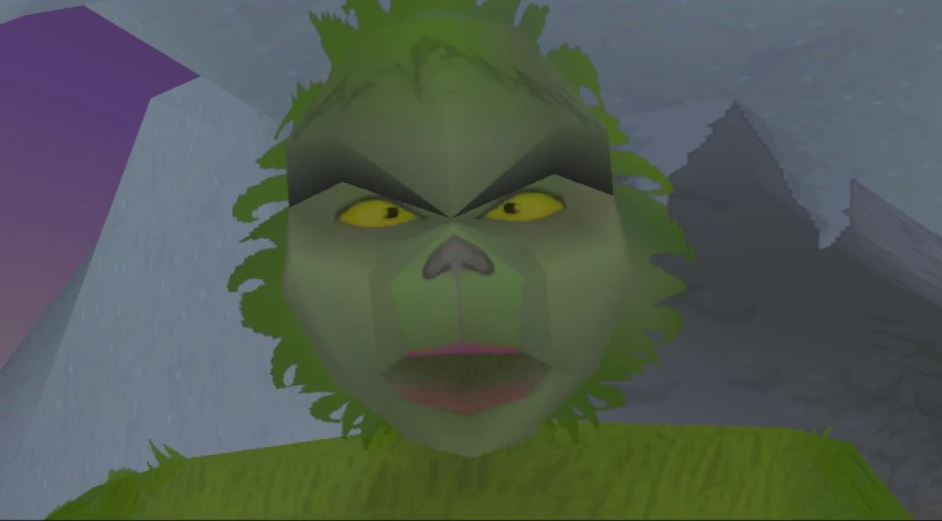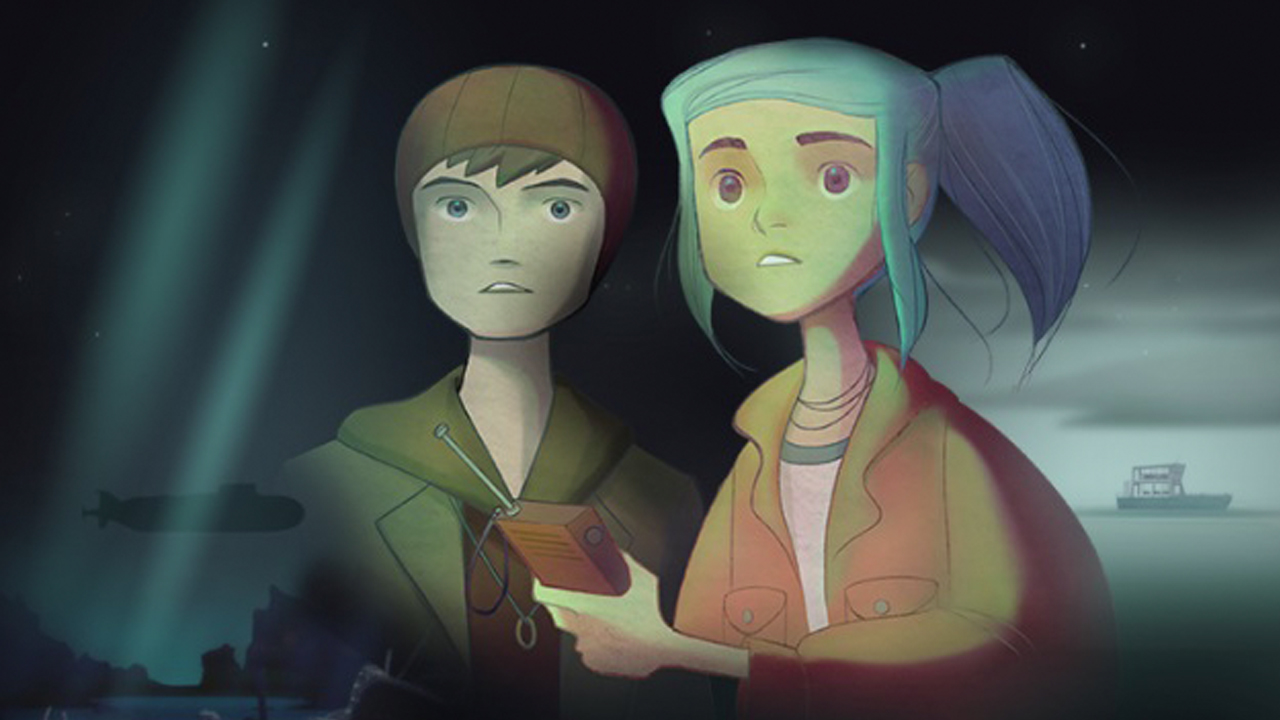From 50 Cent: Bulletproof to Oxenfree, indie Sean Krankel has wild stories from making licensed games
The Night School founder tells us his wild licensed games origin story.

Sean Krankel was sitting across from famous music producer Jimmy Iovine, on the exceptionally debaucherous set of 50 Cent's "P.I.M.P." music video, pitching G-Unit his vision. His goal was to create a video game with a fluid, dynamic combat system that would take the player through interior and exterior environments, as 50 tracks down the assailants who famously shot him nine times. In the middle of Krankel's speech, Iovine received a phone call from the Los Angeles Police Department. This was the night of the BET Awards, and the police didn't want G-Unit to wear their trademark kevlar body armor on stage.
Once upon a time, Sean Krankel had to morph the forsaken Jim Carrey Grinch movie into a sensible video game.
"He's like, 'How many of you are felons?' And like, two-thirds of the room raises their hands," remembers Krankel, noting that it is technically illegal for felons to own combat vest. "[Iovine's] like, 'Look OK, they gotta wear the vests. Our guys are not coming to the BET Awards unless they have the vests on.' Another guy in the room is like, 'We keep living this fuckin' lifestyle man.' I'm in the middle of trying to pitch this dumb videogame! There were a lot of those moments over and over again."
Krankel told that story on Giant Bomb's E3 night show, regaling the stream with highlights from his time working on 50 Cent: Bulletproof, a licensed game that was difficult to reconcile in 2006 and only feels more dreamlike now. There was also that time, for instance, when 50 Cent arrived to a subterranean Vivendi soundbooth to record his portion of the script. Krankel, who is close to the opposite of how you might picture a rapper, watched as a small team of bodyguards scoured every nook and cranny. "We'd be doing these sessions at 3 am, eight people checked to make sure that there wasn't anyone there to kill him, and then we'd record," he says.

Years later Sean Krankel would co-found the indie studio Night School and make Oxenfree, putting them on the map. They're now one of the most exciting indie developers around—Night School's subsequent game, Afterparty, is about literally drinking your way out of hell—but once upon a time he had to morph the forsaken Jim Carrey Grinch movie into a sensible video game. 50 Cent: Bulletproof is really just the tip of the iceberg that is his strange past in licensed game development.
Krankel spent a huge portion of his career working in the licensed games slag mines, and if you get on the phone with him, or scroll through his credits, you'll find a profound litany of questionable commercial tie-ins—The Scorpion King, Desperate Housewives, The Mummy, The Chronicles of Narnia. Nothing really tops the comical misfire of the 50 Cent games, but every licensed game is weird, and funny, and exasperating in its own special way.
"They had me dress up in some stupid outfit and go on the Home Shopping Network to sling copies for The Grinch on PS1 and Dreamcast, and there are people behind me—both full-sized and not—doing backflips, while I'm trying to talk about the 'Seussian architecture' in an intelligent way," he says. "I was a 22-year old kid. Generally you wouldn't have [someone that young] be the face of the whole thing."
If things broke differently, Krankel might be a film producer today. His first real job was a production assistant role at Disney, where he worked on movies like Tarzan and Toy Story 2. It was 1999, he was 20-years old, but he already felt like he had hit a wall. "I was in a spot where I didn't have a path to the career that I wanted," remembers Krankel. Deliverance came in the form of Vivendi Universal Interactive; back then the now-defunct publisher had partnerships with studios like Insomniac and Naughty Dog. Krankel snagged a production job, and at least initially, was tasked with making the sort of games that look appealing on a resume. (Two of the first credits he earned were on the mini-game collection Crash Bash and the mascot's swansong, Crash Bandicoot: The Wrath of Cortex.)
The biggest gaming news, reviews and hardware deals
Keep up to date with the most important stories and the best deals, as picked by the PC Gamer team.

Krankel is a tad wistful for the atmosphere at Vivendi during the early 2000s. The people that worked there were all mired in their early 20s, and they were somehow trusted with an entire marketing budget, hiring power, and production control. It was, in essence, what he was hoping for out of the movie business, but transplanted to the adjacent movie game tie-in business.
Those years, from around 1999 to 2003, were some of the happiest of his professional life. He says he had no idea what he was doing, and that for the most part, was completely abandoned by his superiors. The Grinch movie was stocked with a nine figure expense sheet, but Krankel and his team were left on an island to make the game, which they were grateful for every day.
"It was extremely hands-off, which is shocking when I look back on it, because I never would've trusted me with this stuff," he explains. "Nobody cared. We got a bunch of assets from the filmmakers, we visited the sets, we did all the stuff that seems really cool when you're 21. Then we said, 'Let's try to make a Spyro clone.'"
There was something going on in development at that time where people were throwing darts at the wall and seeing what would stick, even if it wasn't executed perfectly.
Sean Krankel
There are parts of Krankel's body of work that seem downright hallucinogenic. I mean, seriously, how does anyone design a Desperate Housewives game for PC and then sell it? This was in 2006, when the only way to buy into the gaming business was by pressing discs. Who was picking that one off the shelf at Wal-mart? Krankel eventually decided that the PC adaptation of Wisteria Lane would play like a blend between "Shenmue and The Sims," which feels… logical.
I, like you, have never played the Desperate Housewives video game. (According to Gamespot, you're looking at a 6.5 out of 10, and I think that counts as a pleasant surprise.) But Krankel tells me that sometimes, even the dingiest corners of his career in licensed games ended up benefiting him down the road.
"[Desperate Housewives] was the most hands-off of all of them. All Disney was worried about was getting Epic Mickey done, which was costing the studio tons and tons of money. They were like, 'Hey do you want to make a Desperate Housewives game?' Which, I did not, but what are you going to do," he laughs. "Years later, when Telltale was still around, I was interviewing there for Creative Director. I'm on a Skype interview, and the first thing they said was, 'So, Desperate Housewives, huh?' I was like, 'Oh fuck, this is done.'"
"Then they say, 'We really paid attention to that game when we were starting the studio.' That was a nice feather in the cap."
Of course, nobody is in their whiplash 20s forever. Eventually, Sean Krankel was a grown man who wanted a greater purpose in games. He returned to the Disney mothership in the late 2000s, right around the time the company was publishing the Turok reboot—which hinted at a brief, resurgent corporate interest in console-style game franchises. That didn't last, and Krankel found himself in an extremely polarized video game sector. "If you weren't working at Bungie and Infinity Ward, you were working on stuff like Desperate Housewives," he says. "I definitely didn't want that."
So he went full indie. It's hard to imagine Oxenfree's focus on branching, naturalistic character dialogue coming from someone who turned The Grinch into a 3D platformer, but Night School's first game did gangbusters both commercially and critically, and now with Afterparty on the horizon, it feels like the indie studio is off to the races.

Night School Studio's co-founder Adam Hines talked to us about writing Oxenfree for our feature on The future of dialogue in games.
Krankel has spent nearly the entirety of his adult life working in games, but at 40, he says he feels like he's just getting started. He recalls his time on 50 Cent: Bulletproof, and the incredible talent that clocked in and out every day in order to create a game that was doomed from the start. "The lead designer on that game went on the make Darksiders 1 and 2. You've got these people who are dying to get it done, but they don't have the right support," he says. "Night School was part of our vision for a long time, but the tools to build it just weren't there."
Still, Krankel can't let go of a certain amount of nostalgia for his licensed games origin story. For many developers, that's a familiar melancholy. A Grinch, or Desperate Housewives video game, released by physical media into brick-and-mortar Gamestops, simply doesn't exist anymore. They represent the death of a whole economic category of video game that's now mostly relegated to mobile app stores.
Has the industry lost part of its soul along the way, or a training ground for young developers? Krankel says that overall, 2019 is about as good as life has ever been for industry amateurs looking to break their way in. Digital distribution, creator-ownership, all of these are powerful weapons. But there's a stubborn magic of making the most of a property as dead-on-arrival as The Grinch.
"I do long for that stuff. There was something going on in development at that time where people were throwing darts at the wall and seeing what would stick, even if it wasn't executed perfectly," he says. "But now you're building something on the scale of Anthem, or some micro free-to-play slot machine. I miss that double-A game that takes about a year and a half to make."
Back then, the model didn't require [filling a game with] a bunch of monetization stuff. You could feel a team trying, and swinging hard. It felt pure," finishes Krankel. "Even if the game sucked."

Luke Winkie is a freelance journalist and contributor to many publications, including PC Gamer, The New York Times, Gawker, Slate, and Mel Magazine. In between bouts of writing about Hearthstone, World of Warcraft and Twitch culture here on PC Gamer, Luke also publishes the newsletter On Posting. As a self-described "chronic poster," Luke has "spent hours deep-scrolling through surreptitious Likes tabs to uncover the root of intra-publication beef and broken down quote-tweet animosity like it’s Super Bowl tape." When he graduated from journalism school, he had no idea how bad it was going to get.

